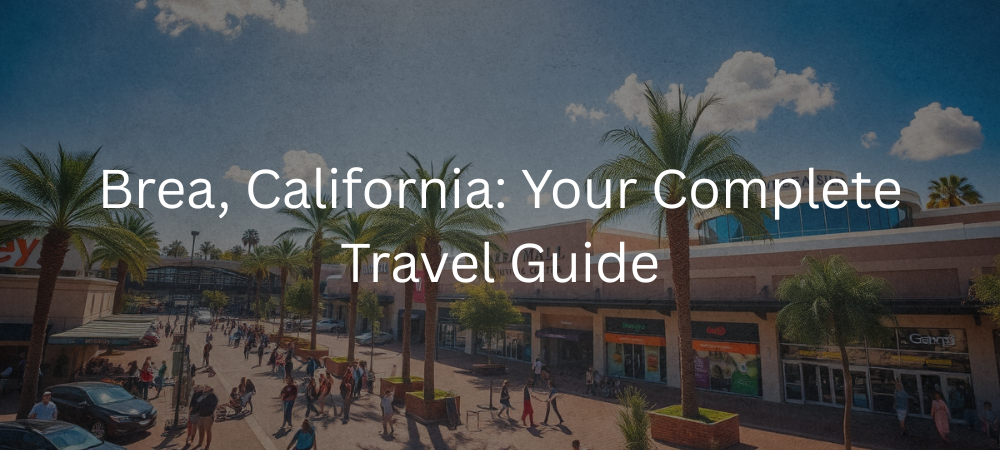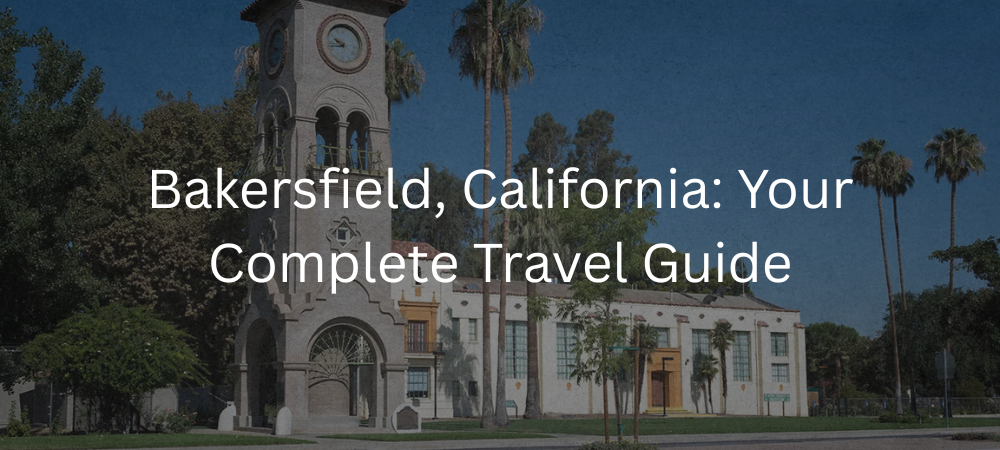Table of Contents
Introduction to Fayetteville (Fayetteville Travel Guide)
Nestled in the scenic foothills of the Ozark Mountains, Fayetteville Arkansas stands as a vibrant, progressive city blending natural beauty, deep history, and modern innovation. With a population of nearly 100,000, Fayetteville is the third-largest city in Arkansas and anchors the rapidly growing Northwest Arkansas metro area. Its location offers rolling green hills, lush forests, and a wealth of outdoor experiences, while its dynamic college-town energy is fueled by the presence of the University of Arkansas one of the state’s premier educational institutions.
Fayetteville’s reputation extends beyond its university roots. It’s a city that celebrates diversity and local culture, proudly hosting annual events, supporting a lively arts scene, and fostering a spirit of community engagement. Razorback football games bring thousands to the city, but so do the thriving local restaurants, historic downtown, extensive bike trails, and unique shopping experiences. Whether you’re seeking adventure, culture, cuisine, or relaxation, Fayetteville promises an abundance of experiences in an inviting, friendly atmosphere.
Historical Significance of Fayetteville
The Birth/Foundation of Fayetteville
Originally known as Washington, the area that would become Fayetteville was settled in the early 1820s. The city was renamed Fayetteville in the early 19th century, inspired by Fayetteville, Tennessee, itself named after the French-American Revolutionary War hero Marquis de Lafayette. Its early growth was shaped by its position as a trading post and crossroads for settlers venturing into the Ozarks.
Historical Timeline
- 1828: Fayetteville was officially incorporated as a town, quickly becoming a commercial and administrative hub for Northwest Arkansas.
- Civil War Era: The city played a strategic role due to its location, with skirmishes and occupation by both Union and Confederate forces.
- Late 19th Century: The arrival of the railroad accelerated growth, transforming Fayetteville into a bustling center for trade and agriculture.
- 1871: The University of Arkansas was established, cementing Fayetteville’s status as an educational and cultural center.
- 20th Century: Growth continued with new neighborhoods, business districts, and civic institutions.
- Modern Era: Today, Fayetteville is recognized for its thriving economy, progressive values, and commitment to sustainability and the arts.
Cultural Heritage
Fayetteville’s cultural heritage is rich and multifaceted, shaped by its Southern roots, university influence, and waves of migration. Traditions such as the annual farmers market, holiday parades, and “Woo Pig Sooie!” cheers at football games showcase its community spirit. Historic sites like the Washington County Courthouse and Clinton House Museum preserve stories from the city’s past, while local festivals and arts organizations keep heritage alive through music, food, and crafts.
Evolution and Modern Development
Modern Fayetteville is a testament to thoughtful urban planning and community investment. Downtown revitalization efforts have preserved historic architecture while adding green spaces and enhanced walkability. The city’s commitment to sustainability is visible in its extensive trail system, local farmers markets, and green initiatives. Fayetteville continues to attract new residents and businesses, thanks to its high quality of life, robust job market, and reputation as a welcoming, innovative city.
Top Attractions in Fayetteville
1. University of Arkansas Campus
The sprawling, tree-lined University of Arkansas campus is the heartbeat of Fayetteville. Visitors can stroll through Old Main Lawn, admire the iconic Old Main building (built in 1875), and soak in collegiate traditions. During football season, Donald W. Reynolds Razorback Stadium pulses with excitement, drawing fans from across the region.
Address: 1 University of Arkansas, Fayetteville, AR 72701
Campus Hours: Open to the public year-round; check university events calendar for specific activities.
2. Fayetteville Downtown Square & Gardens
Fayetteville’s historic Downtown Square is a charming blend of old and new. Victorian-era buildings house boutiques, cafes, and galleries. The Square is home to the weekly Farmers Market (April–November), where local vendors offer fresh produce, crafts, and live music. During the winter, the Lights of the Ozarks festival transforms the area into a festive wonderland.
Address: Centered at East Ave & Mountain St, Fayetteville, AR 72701
Farmers Market: Saturdays & Tuesdays, 7:00 AM–1:00 PM (April–November)
3. Clinton House Museum
The modest home where Bill and Hillary Clinton were married is now the Clinton House Museum, offering an intimate look into the early life of the future President and Secretary of State. Exhibits include memorabilia, campaign artifacts, and Clinton-era furnishings.
Address: 930 W Clinton Dr, Fayetteville, AR 72701
Hours: Tues–Sat 10:00 AM–5:00 PM
4. Botanical Garden of the Ozarks
The Botanical Garden of the Ozarks is an oasis of native plants, themed gardens, and butterfly habitats. Visitors can enjoy walking trails, educational programs, and seasonal events such as the Firefly Fling and outdoor concerts.
Address: 4703 N Crossover Rd, Fayetteville, AR 72764
Hours: Daily 9:00 AM–5:00 PM (seasonal hours may vary)
5. Dickson Street Entertainment District
Dickson Street is Fayetteville’s hub for nightlife, dining, and live entertainment. Lined with bars, restaurants, music venues, and theaters, it’s the place to catch a show at George’s Majestic Lounge (Arkansas’ oldest live music venue) or enjoy local brews at the many pubs.
Address: Dickson Street, Fayetteville, AR 72701
Hours: Varies by venue; nightlife peaks Thursday–Saturday evenings
Outdoor Activities and Recreation
Lake Fayetteville Park
Lake Fayetteville Park offers 458 acres of trails, fishing piers, a boat dock, disc golf course, and picnic areas. Cyclists and runners flock to the 5.5-mile paved loop around the lake, while birdwatchers enjoy the diverse wildlife.
Address: 1153 E Lake Fayetteville Rd, Fayetteville, AR 72764
Hours: Sunrise to sunset
Razorback Regional Greenway
The Razorback Greenway is a 40-mile multi-use trail connecting Fayetteville to six neighboring cities. Perfect for biking, running, and walking, the trail traverses parks, neighborhoods, and natural areas. Fayetteville’s section offers scenic views, creek crossings, and access to local hotspots like the Fayetteville Public Library and The Ramble.
Trailheads: Access throughout Fayetteville; major entry at South Gregg Ave & Prairie St
Centennial Park
Centennial Park is a nationally recognized cycling and outdoor sports venue. It hosts international cyclo-cross events and offers mountain biking trails, pump tracks, and panoramic Ozark views.
Address: 495 S Centennial Park Ln, Fayetteville, AR 72704
Hours: Daily, sunrise to sunset
Nature Trails and Hiking
- Kessler Mountain Regional Park: Features over 10 miles of hiking and mountain biking trails through forested Ozark terrain.
- Wilson Park: Fayetteville’s oldest city park, with walking paths, playgrounds, and public art installations.
- Lake Wedington: Located west of town, offers hiking, fishing, camping, and canoeing in a peaceful woodland setting.
Cultural Attractions and Events
Annual Events and Festivals
- Lights of the Ozarks: Winter festival featuring over 400,000 holiday lights on the Downtown Square (late November–early January).
- Springfest: Family-friendly spring celebration with arts, food vendors, and live music on Dickson Street.
- Block Street Block Party: Annual summer street festival with local bands, food trucks, and crafts.
- Fayetteville Roots Festival: Celebrates folk and Americana music, local food, and community spirit in August.
Local Arts and Music Scene
Fayetteville’s arts scene thrives with venues such as the Walton Arts Center (regional performing arts hub), TheatreSquared (professional theater company), and George’s Majestic Lounge (live music). Public art installations, galleries, and frequent concerts give the city a creative pulse.
Museums and Cultural Sites
- Arkansas Air and Military Museum: Aviation and military exhibits housed in a vintage hangar.
- Shiloh Museum of Ozark History: Located in nearby Springdale, offers regional history exhibits.
- Dickson Street Bookshop: Legendary indie bookstore with rare and out-of-print volumes.
Dining and Local Cuisine
Local Favorites
- Leverett Lounge: Elevated comfort food in a cozy setting; known for creative small plates.
- Hugo’s: Iconic basement burger joint on the Square, famous for its “Swiss cheese” burger and homemade fries.
- Arsaga’s at the Depot: Local coffee roaster and café serving brunch, pastries, and craft drinks.
Coffee Shops and Casual Dining
- Onyx Coffee Lab: Award-winning local roaster with expertly crafted espresso drinks.
- Ozark Natural Foods Co-op: Healthy lunches, groceries, and baked goods sourced from local farms.
- Food Trucks on College (“Yacht Club”): Eclectic collection of food trucks serving tacos, BBQ, Asian fusion, and more.
Fine Dining Options
- Vetro 1925: Upscale Italian restaurant with house-made pastas and fine wines.
- Ella’s Table: Elegant Southern cuisine inside the historic Inn at Carnall Hall.
Accommodation Options
Hotels and Motels
- Graduate Fayetteville: Boutique hotel with collegiate-themed décor, steps from the Square.
- Inn at Carnall Hall: Historic inn on the University of Arkansas campus, blending vintage charm with modern amenities.
- Hilton Garden Inn Fayetteville: Comfortable lodging near the university and Dickson Street.
Unique Lodging Experiences
- Dickson Street Inn: Quaint bed-and-breakfast in the heart of the entertainment district.
- Airbnb Rentals: From downtown lofts to cozy cabins, Fayetteville offers a range of short-term rentals for every budget.
Camping and RV Facilities
- Lake Wedington Recreation Area: Campgrounds for tents and RVs, plus cabins for rent.
- Prairie Creek Campground: Located near Beaver Lake, offers full hookups and lake access.
Shopping and Local Businesses
Antique Shops and Collectibles
- Rock House 205: Antique shop housed in a 1916 home, offering vintage artwork, cookware, and home goods.
- French Metro Antiques: European antiques and collectibles in a historic building.
Local Crafts and Artisan Goods
- Fayetteville Farmers Market: Weekly market for handmade crafts, local foods, and art.
- Local Color Studio Gallery: Showcases works by regional artists in a welcoming space.
Specialty Stores
- Dickson Street Bookshop: Discover rare books and first editions in this beloved indie shop.
- B-Unlimited: Local apparel featuring Fayetteville and Razorback-themed gear.
Transportation and Getting Around
Driving to Fayetteville
Fayetteville is easily accessible via Interstate 49, connecting it to the rest of Arkansas and neighboring states. The city is about 2.5 hours from Little Rock and 45 minutes from Bentonville.
Local Transportation
- Ozark Regional Transit: Provides bus service throughout Fayetteville and the Northwest Arkansas metro.
- Razorback Transit: Free shuttle service for University of Arkansas students, also open to the public.
- Bike Share: Multiple bike rental stations along the Razorback Greenway and downtown.
Accessibility Information
Fayetteville’s downtown, trails, and major attractions are generally ADA-accessible. The city provides resources for accessible parking and transportation; check with individual venues for specific accommodations.
Seasonal Considerations and Best Times to Visit
Spring in Fayetteville
Spring brings blooming dogwoods and azaleas, mild temperatures, and lively outdoor festivals like Springfest. Trails and parks are especially vibrant, making this season ideal for hiking and exploring gardens.
Summer Activities
Summer offers long, sunny days perfect for boating on Lake Fayetteville, cycling the Greenway, and enjoying rooftop patios. The Block Street Block Party and farmers market are summer highlights.
Fall Season
Autumn is Fayetteville’s crown jewel, with fiery foliage, crisp air, and the energy of Razorback football. The Lights of the Ozarks kicks off in late fall, and local breweries release seasonal craft beers.
Winter Opportunities
Winter is quieter but festive. Lights of the Ozarks illuminates the Square, and cozy cafés provide warmth after brisk walks. Snow is rare but possible; indoor museums and theaters are popular during colder months.
Planning Your Visit to Fayetteville Arkansas
Recommended Itineraries
4-Day Itinerary :
- Day 1: Explore the University of Arkansas, Downtown Square, and local shops.
- Day 2: Hike Kessler Mountain or Lake Fayetteville, then sample brews on the Ale Trail.
- Day 3: Visit Clinton House Museum, relax at Botanical Garden of the Ozarks, dinner on Dickson Street.
- Day 4: Discover local art galleries, antique shops, and enjoy a live music show.
Budget Considerations
Fayetteville offers options for every budget. Free activities include hiking trails, public parks, and the farmers market. Dining ranges from inexpensive food trucks to fine dining. Lodging starts around $80/night for hotels, with camping and Airbnb options available.
What to Pack and Bring
- Comfortable walking shoes for trails and downtown.
- Layers for changing weather spring and fall can be unpredictable.
- Sunscreen and insect repellent for outdoor activities.
- Rain jacket or umbrella (occasional showers).
- Razorback gear if attending a football game!
Hidden Gems and Local Secrets
Off-the-Beaten-Path Locations
- The Ramble: Reclaimed green space with creekside paths, amphitheater, and community art installations.
- Dickson Street Bookshop: Floor-to-ceiling shelves of rare books, a must for bibliophiles.
- Lake Wedington: Peaceful escape for camping, canoeing, and birdwatching.
Local Traditions and Culture
- “Woo Pig Sooie!”: The unique Razorback chant heard during games and community celebrations.
- Ale Trail: Self-guided tour of local breweries, combining craft beer with scenic Ozark views.
Insider Tips
- Visit the farmers market early for the best selection and fewer crowds.
- Take a sunset bike ride on the Greenway for stunning Ozark vistas.
- Reserve dinner at Leverett Lounge or Vetro 1925 in advance popular spots fill up quickly.
Conclusion
Fayetteville Arkansas, is a destination that rewards curiosity and adventure. Its blend of natural splendor, historic character, dynamic culture, and warm hospitality make it a place you’ll want to return to again and again. Whether you’re cheering on the Razorbacks, hiking Ozark trails, savoring local cuisine, or discovering hidden corners, Fayetteville offers an unforgettable journey into the heart of Northwest Arkansas.








